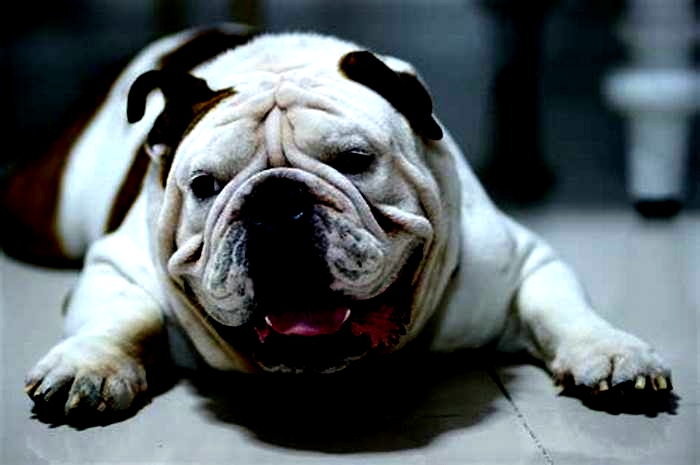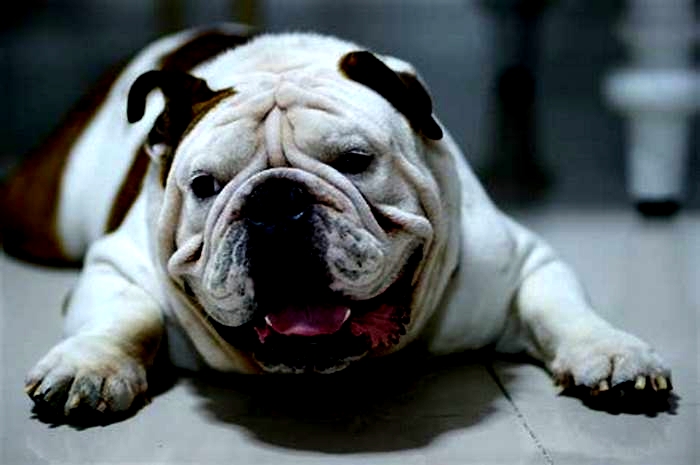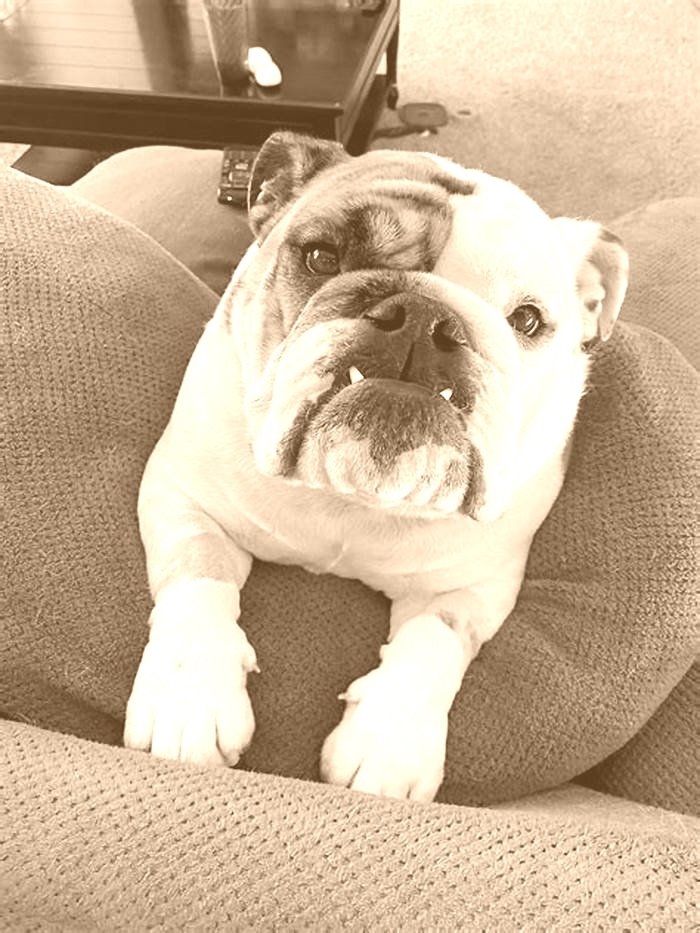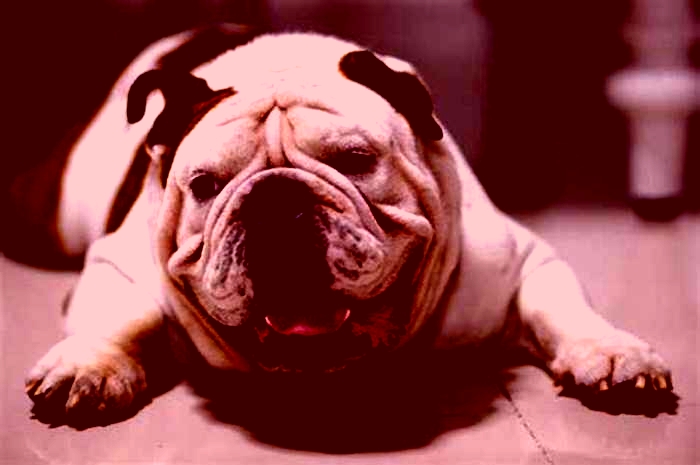Bulldog Obesity How to Advocate for Your Pets Health Needs
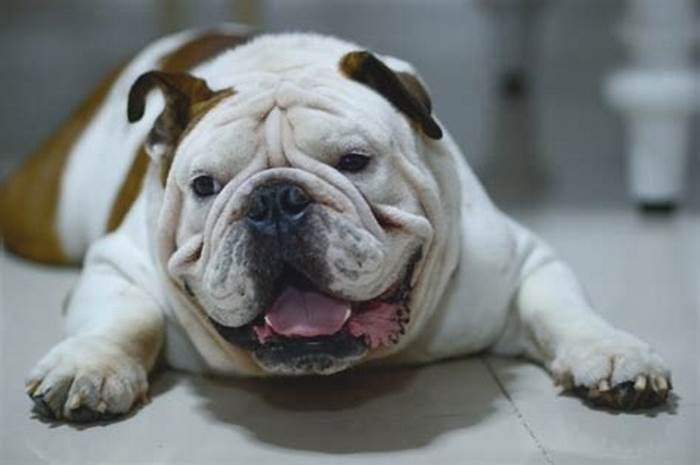
Understanding Obesity in French Bulldogs: Causes, Health Risks, and Prevention
Introduction
French Bulldogs are beloved for their adorable looks, playful personalities, and compact size. However, like any other dog breed, French Bulldogs are prone to certain health issues, and one common concern is obesity. In this article, we will explore the causes of obesity in French Bulldogs, the associated health risks, and provide practical tips for prevention. So, if youre a French Bulldog owner or considering getting one, read on to learn more about the importance of maintaining a healthy weight for your furry friend.
Understanding Obesity in French Bulldogs
Obesity is a condition characterized by excessive body fat accumulation, which can have detrimental effects on a dogs overall health and well-being. In French Bulldogs, obesity occurs when their calorie intake exceeds their energy expenditure, leading to weight gain and subsequent health complications.
Factors contributing to obesity in French Bulldogs
Several factors can contribute to obesity in French Bulldogs. These include:
- Overfeeding: Providing more calories than necessary or indulging in frequent treats can quickly lead to weight gain.
- Lack of exercise: Insufficient physical activity and sedentary lifestyles can contribute to obesity.
- Genetic predisposition: Some French Bulldogs may have a genetic predisposition to weight gain, requiring extra vigilance in maintaining their weight.
Health Risks Associated with Obesity
Obesity in French Bulldogs can lead to various health risks, including:
Joint problems
Excess weight places additional strain on a dogs joints, increasing the risk of conditions such as arthritis and hip dysplasia. These conditions can cause pain, discomfort, and mobility issues for French Bulldogs.
Respiratory difficulties
French Bulldogs are brachycephalic breeds, meaning they have shorter snouts and narrower airways. When obese, the excess fat can further constrict their airways, leading to breathing difficulties and a decreased ability to regulate body temperature.
Heat intolerance
Due to their compromised breathing, overweight French Bulldogs are more susceptible to heat intolerance and heatstroke. They struggle to cool themselves efficiently, making them vulnerable in hot and humid conditions.
Skin issues
Excessive fat folds and poor ventilation in obese French Bulldogs can lead to skin fold dermatitis, a condition characterized by redness, irritation, and infection in skin folds. This can cause discomfort and require medical treatment.
Increased risk of surgical complications
Obese French Bulldogs are at a higher risk of complications during surgical procedures. Anesthesia and recovery can be more challenging, and healing may be slower due to reduced blood flow.
Preventing Obesity in French Bulldogs
Prevention is key when it comes to obesity in French Bulldogs. Here are some essential tips to help you maintain a healthy weight for your furry companion:
Balanced diet and portion control
Provide a nutritionally balanced diet specifically formulated for French Bulldogs. Consult with your veterinarian to determine the appropriate portion size for your dogs age, weight, and activity level. Avoid free-feeding and excessive treats, opting for healthy alternatives instead.
Regular exercise and physical activity
Engage your French Bulldog in regular exercise and playtime. Aim for daily walks and interactive play sessions that stimulate both their physical and mental well-being. Regular exercise helps burn calories and keeps their weight in check.
Also Read:
Isabella Dachshund: A Unique and Lovable Companion Breed
Avoiding overfeeding and table scraps
Resist the temptation to give in to those pleading puppy eyes during mealtime. Avoid feeding your French Bulldog table scraps, as they can contribute to weight gain and disturb their balanced diet.
Monitoring weight and body condition
Keep track of your French Bulldogs weight and body condition regularly. Look for signs of excessive weight gain, such as difficulty in feeling their ribs or a lack of a distinct waistline. Adjust their diet and exercise routine accordingly.

Consulting with a veterinarian
Regular veterinary check-ups are essential for maintaining your French Bulldogs overall health. Your veterinarian can provide guidance on nutrition, weight management, and address any concerns or questions you may have.
Conclusion
Keeping your French Bulldog at a healthy weight is crucial for their well-being and longevity. Obesity in French Bulldogs can lead to a range of health problems, including joint issues, respiratory difficulties, heat intolerance, skin conditions, and surgical complications. By following a balanced diet, ensuring regular exercise, and monitoring their weight, you can help your French Bulldog live a happy and healthy life.
FAQs (Frequently Asked Questions)
Can neutering or spaying contribute to obesity in French Bulldogs?
Neutering or spaying itself does not directly cause obesity in French Bulldogs. However, these procedures can affect their metabolism and appetite, making weight management more important after the surgery.
Are all French Bulldogs prone to obesity?
While obesity can affect any dog breed, French Bulldogs have a higher predisposition due to their genetic makeup and their tendency to be less active. However, with proper care and attention, obesity can be prevented or managed effectively.
How can I determine if my French Bulldog is overweight?
You can assess your French Bulldogs weight by feeling their ribs. Ideally, you should be able to feel them without excessive fat covering. Additionally, a distinct waistline when viewed from above indicates a healthy weight.
Are there specific dietary recommendations for preventing obesity in French Bulldogs?
French Bulldogs benefit from a balanced diet that is rich in lean proteins, moderate in healthy fats, and low in carbohydrates. Consult with your veterinarian to determine the most suitable diet for your French Bulldogs individual needs.
Can obesity in French Bulldogs be reversed?
Yes, with proper diet, exercise, and consistent weight management, obesity in French Bulldogs can be reversed. It is important to work closely with your veterinarian to develop a tailored plan for your dogs weight loss journey.
French Bulldog
French Bulldogs, or Frenchies, are easygoing, happy little dogs that make loving companions. Their good-natured temperament, bright personality, and compact size have made them become one of the most popular dog breeds in the U.S.
Caring for a French Bulldog
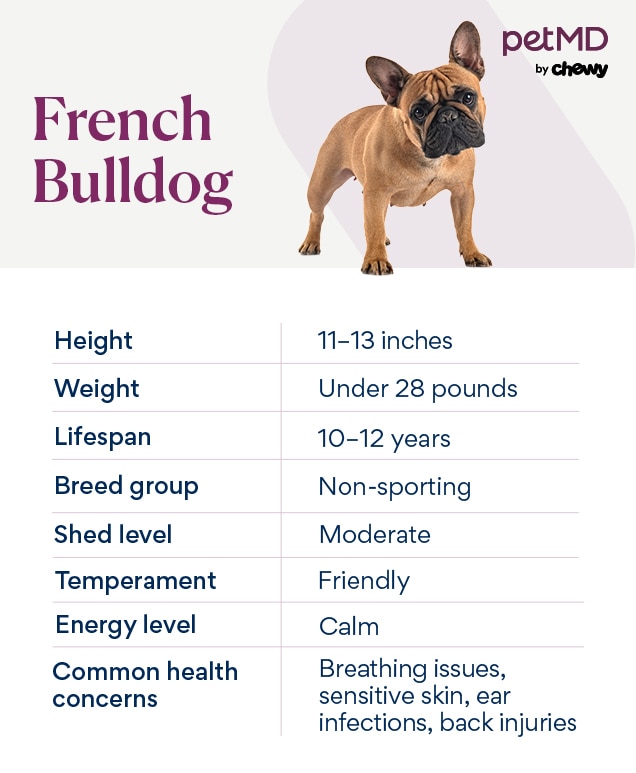
Frenchies are compact, small dogs with a short muzzle; a wide, flat face; and large, bat-like ears. Full-grown French Bulldogs weigh under 28 pounds and stand 1113 inches tall. They typically have a broad, heavily muscled chest and petite body. This distinctive appearance is cute, but it also makes Frenchies susceptible to several health-related conditions.
The flatness of their face makes them less tolerant to heat and humidity, so care should be taken to prevent a Frenchie from overheating. Additionally, their face has many skin folds that should becleaned regularly with a dog-safe wipe. Frenchies also cannot swim well because of the uneven distribution of their muscle mass and, therefore, should never be left unattended near a body of water.
French Bulldog Health Issues
The French Bulldogs lifespan is 1012 years, but they are prone to several conditions that can impact their wellbeing. Common French Bulldog health issues include:
Brachycephalic Airway Syndrome
Like other flat-faced dogs, including English Bulldogs, Pugs,andPekingese, French Bulldogs are vulnerable to a condition calledbrachycephalic airway syndrome. This syndrome is a combination of abnormalities that affect the respiratory tract, including narrow nasal openings; a long, soft palate in the mouth; and a narrow trachea (windpipe). These changes result in increased effort and noise when breathing.
Affected dogs may struggle to catch their breath when exercising, prefer to breathe out of their mouth than their nose, and tire easily, especially when its hot. Its important that you watch your French Bulldog closely when shes exercising to prevent overexertion.
Airway issues like this can be life-threatening. Keeping your Frenchie away from extreme heat and avoiding long walks or play sessions on hot days is very important.
Sensitive Skin
French Bulldogs also have very sensitive skin, which is often secondary to allergies. Signs of allergies may include:
Licking or chewing the feet
Scratching
Head shaking
Skin infections
Redness or bumps on the body
Runny eyes
Sneezing or reverse sneezing
Some allergies may be very mild and easily managed with a dermatologic diet, medicated shampoo/wipes, antihistamines, and omega-3 fatty acid supplementation. Other allergies may be more severe and cause skin or ear infections.
Depending on how severe they are, managing your Frenchies allergies may require frequent visits to the vet for the duration of your dogs life. Keep in mind: Allergies in dogs can only be managed, not cured.
Ear Infections
Ear infections, including both yeast and bacterial infections, are another common French Bulldog health issue. Ear infections may be a sign of underlying allergies, or they may be caused by the shape of the ear canal.
Symptoms of an ear infection may include head shaking, scratching, odor, and inflammation. If you suspect that your Frenchie has an ear infection, make an appointment with your veterinarian. The vet will likely swab your dogs ear canal and look under the microscope to see what is causing the discomfort.
Regular ear cleanings with pH-balanced ear cleaner specifically for canines can help reduce the frequency of ear problems.
Back Injuries
French Bulldogs are also prone to back injuries, especially if they are overweight and not getting enough exercise. Avoid letting your Frenchie jump from high surfaces, and instead train them to use steps to climb onto high furniture or couches. Ensure their weight is managed and provide plenty of exercise to build muscle and protect the back and joints.
Signs of a back injury in dogs can range from limping to even paralysis, which often starts with the back legs. Any change in your Frenchies gait or their general demeanor should be discussed with your veterinarian.
Birthing Issues
French Bulldogs are rarely able to give birth naturally due to the shape of their pelvis and size of their head. A C-section is generally required.
If you are planning on breeding a French Bulldog, establish a good working relationship with your veterinarian. Emergency C-section procedures can be costly, so its important to consider this expense before breeding French Bulldog puppies.
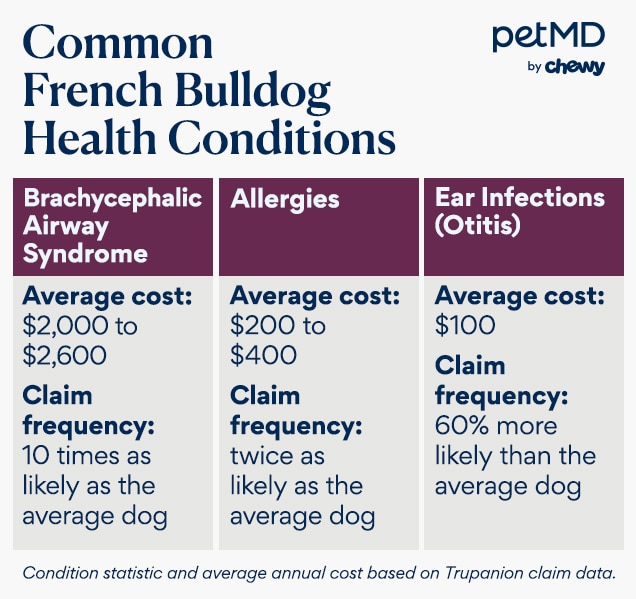
What To Feed a French Bulldog
French Bulldogs should be fed a balanced, life stage-appropriate dog food approved by the Association of American Feed Control Officials (AAFCO). Avoid overfeeding, as obesity increases their risk for back injuries and may aggravate any underlying airway issues.
How To Feed a French Bulldog
French Bulldogs should be fed two meals a day as an adult and three to four times a day as a puppy on a consistent schedule. Its important to feed your pup a life stageappropriate, complete diet. French Bulldog puppies should eat puppy food until they are 1 year old. Adult food is recommended from ages 17 years old, and a senior diet is recommended for older French Bulldogs.
Again, avoid overfeeding and switch to a calorie-restricted diet if your Frenchie is becoming overweight.
How Much Should You Feed a French Bulldog?
The exact amount fed varies by the brand and nutrient profile of your dog food. Look on the back of the bag for guidelines on how many cups to feed your Frenchie per day based on a healthy weight. Always consult with your veterinarian when changing your pets diet or if you have questions about their food intake.
Nutritional Tips for French Bulldogs
French Bulldogs may benefit from a quality omega-3 supplement that supports their skin and coat. Omega-3 essential fatty acids bolster the skins natural ability to resist overgrowth of bacteria and yeast. Additionally, essential fatty acids can reduce inflammation and support healthy joints.
Behavior and Training Tips for French Bulldogs
French Bulldog Personality and Temperament

French Bulldogs have fun-loving and outgoing personalities. They are bright and happy dogs that play well with others. With proper socialization, they usually get along well with most people and pets. They have a moderate energy level and enjoy social walks.
French Bulldog Behavior
French Bulldogs are curious and enjoy games. They love to be the center of attention and are usually not found too far away from their families. While they can be a little suspicious of new situations, proper socialization usually keeps this from being an issue, as the natural French Bulldog temperament tends to be more laid-back.
French Bulldog Training
French Bulldogs thrive in a training environment rich in positive reinforcement. They love games and do well when training is fun. But Frenchies can also be a bit uninterested if training is presented in a manner thats not conducive to their fun-loving approach to life.
While Frenchies may thoroughly enjoy obedience and light agility training, care should be taken to ensure they do not overheat or exhaust themselves.
Fun Activities for French Bulldogs
Short walks
Obedience training
Agility
Fetch
Tug-of-war
Hide-and-seek games
French Bulldog Grooming Guide

Though Frenchies might need special care due to their brachycephalic build, this short-coated breed is relatively simple to keep clean.
Skin Care
A French Bulldogs flat face can have a lot of wrinkles, and those skin folds need to be kept clean and dry. Make sure they dont get any food or drool stuck in their facial folds after eating by wiping them with a damp cloth or a medicated wipe.
Because French Bulldogs are at risk for skin allergies, they can benefit from a bath every one or two months. If your pup does develop skin allergies, theyll need a bath more frequently with a medicated shampoo, depending on the severity of the specific skin issues.
Coat Care
French Bulldogs have a short coat and are average shedders. Their fur only requires occasional maintenance, and weekly brushing can help catch any loose hairs before they end up on your furniture.
Eye Care
A Frenchie'seyes should be wiped as needed to clear them of any drainage. This will also help prevent moisture from accumulating in the skin fold between their eyes and nose.
Ear Care
Because theyre prone to infections, French Bulldog ears should be cleaned every week or two with acanine ear cleanser. Make sure to clean their ears whenever your Frenchie is in water, like after bath time, to ensure the ear canals stay clean and dry.
Considerations for Pet Parents
The biggest thing to be aware of before bringing home a French Bulldog puppy is the breed's potential health issues. Due to their anatomy, Frenchies can have issues with breathing, overheating, giving birth, allergies, and their backs. Ensure you have a plan for any unexpected medical expenses that may arise.
French Bulldog FAQs
Is a French Bulldog a good family dog?
Are French Bulldogs smart dogs?
French Bulldogs are smart and playful dogs. They are generally easy to train if their training is rich in positive reinforcement and fun.
How much does a French Bulldog cost? Why are they so expensive?
The cost of a French Bulldog varies by region, but the average price in the U.S. is between $1,500$5,000. They are expensive for a few reasons: For one, theyre highly sought-after because they are good-natured, easy-going companions, and can happily adapt to a small apartment. Additionally, French Bulldog puppies need to be delivered via C-section, which is an expensive procedure.
Are Frenchies high maintenance?
French Bulldogs can be high-maintenance due to their health issues. Regular ear cleaning is a must to avoid infections and, if your Frenchie has allergies, they may also require additional medications, special shampoo, and veterinary visits to keep their skin healthy and clear.
Can French Bulldogs go on long walks?
French Bulldogs should not be taken for excessively long walks. Short walks (around 15 minutes at a time) are ideal to keep their mind and body fit without exhausting them. Frenchies are not resistant to extreme temperatures and should not be out in hot or cold weather for long.
Featured Image: iStock.com/Tatyana Consaul
WRITTEN BY
Melissa Boldan, DVMVeterinarian
Dr. Melissa Boldan graduated from the University of Missouri College of Veterinary Medicine in 2012. She initially practiced mixed animal...


